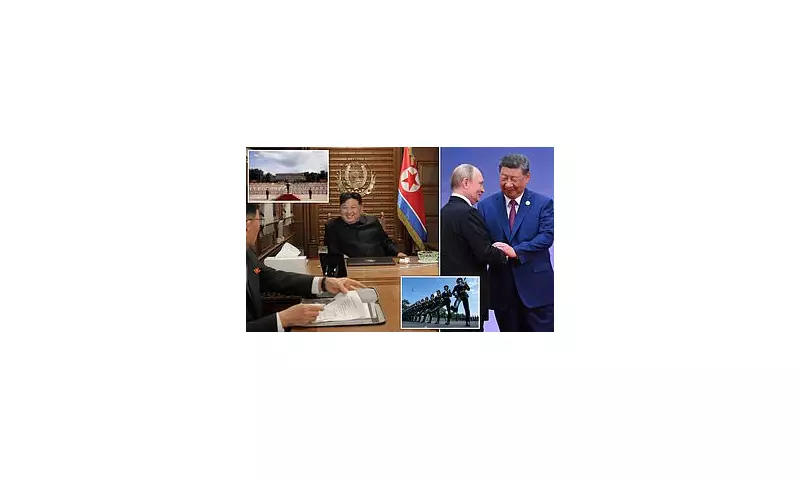
In a move underscoring deepening geopolitical alliances, North Korea's enigmatic leader, Kim Jong Un, has been confirmed to have crossed into China aboard his heavily fortified private train. The clandestine journey sets the stage for a high-stakes meeting with Russian President Vladimir Putin and Chinese Premier Xi Jinping.
The trio is convening in Beijing for a significant display of military might—a massive parade orchestrated by the Chinese Communist Party. Analysts perceive this gathering as a powerful visual manifesto against NATO and Western hegemony, promoting an alternative 'world order'.
A Summit of Strategic Convenience
This rare convergence of three of the world's most scrutinised leaders is far from a mere ceremonial event. It represents a calculated strategic pivot, forming a united front against perceived common adversaries. The summit is expected to focus on enhancing military cooperation, economic partnerships, and mutual support in the face of international sanctions.
For Kim Jong Un, the journey itself is a statement. His choice of transport, an armoured train renowned for its security and secrecy, echoes the travel habits of his forebears and highlights the clandestine nature of his regime's diplomacy.
The Beijing Parade: A Show of Force
The centrepiece of their meeting will be Beijing's formidable military parade. This showcase of advanced hardware and disciplined troops is designed to project an image of unwavering strength and unity between the three nations. It serves as a direct challenge to the influence of the United States and its allies, signalling their collective capacity to shape global affairs outside traditional Western-led institutions.
Observers will be watching closely for any announcements on joint military exercises, arms deals, or shared security policies that could emerge from this anti-NATO gathering, potentially altering the balance of power in Asia and beyond.





